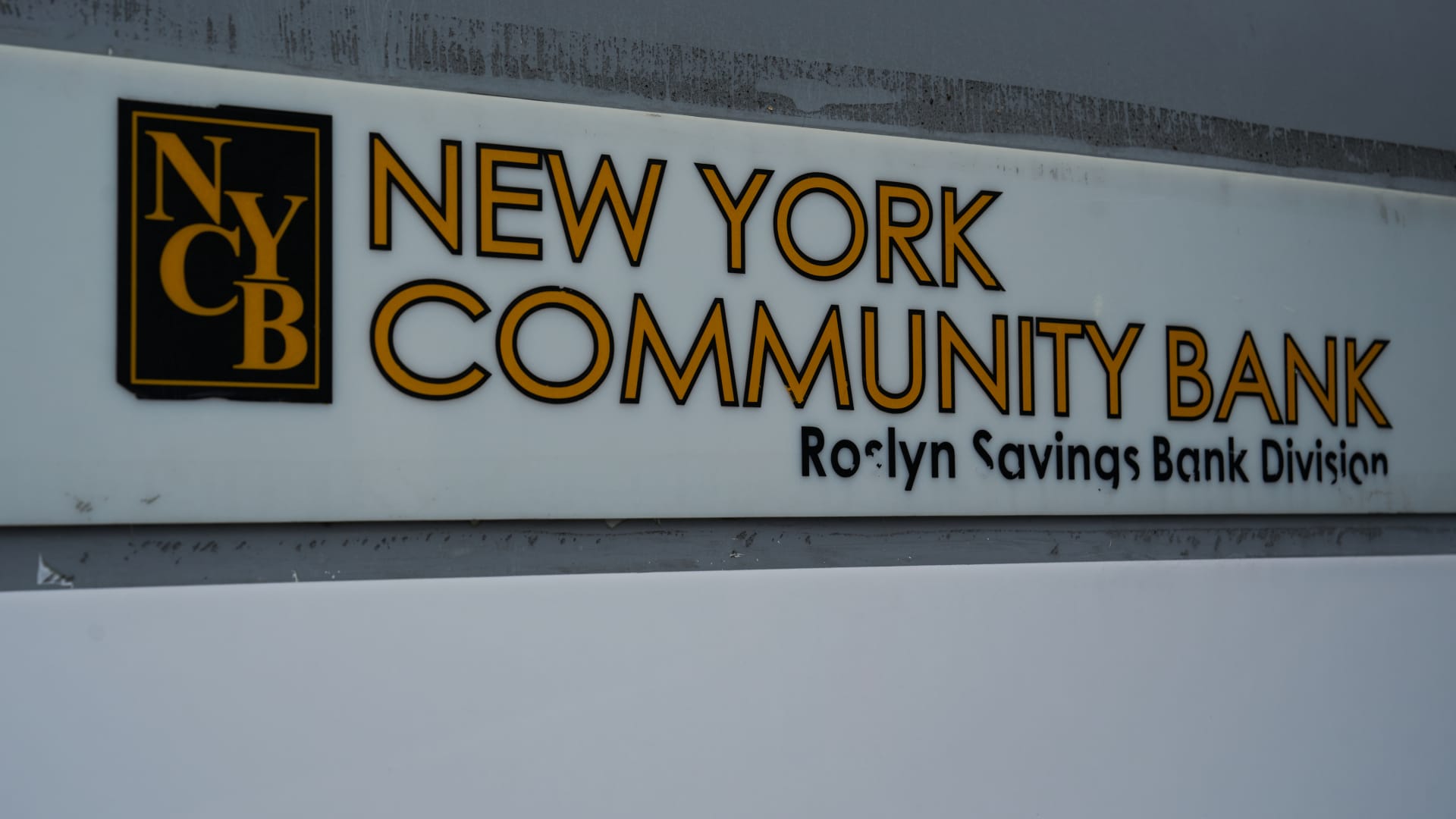Embattled lender New York Community Bank disclosed a litany of financial metrics in the past 24 hours in a bid to soothe skittish investors.
But one of the most crucial resources for any bank appears to be in short supply for NYCB lately: confidence.
The regional bank late Tuesday said that deposits were stable at $83 billion and that the firm had ample resources to cover any possible flight of uninsured deposits. Hours later, it promoted chairman Alessandro DiNello to a more hands-on role in management.
The moves spurred a 6% jump Wednesday in NYCB shares, a small dent in the stock’s more than 50% decline since the bank reported fourth-quarter results last week. Shares of the Hicksville, New York-based last traded for about $4.48 per share.
“There’s a confidence crisis here,” said Ben Emons, head of fixed income at NewEdge Wealth. “The market doesn’t have belief in this management.”
Amid the freefall, ratings agency Moody’s cut the bank’s credit ratings two notches to junk, citing risk management challenges while the firm searches for a pair of key executives. Making matters worse, NYCB was hit with its first shareholder lawsuit Wednesday over the share collapse, alleging that executives misled investors about the state of its real estate holdings.
The sudden decline in NYCB, previously deemed one of last year’s winners after acquiring the assets of Signature Bank, reignited fears over the state of medium-sized American banks. Investors have worried that losses on some of the $2.7 trillion in commercial real estate loans held by banks could trigger another round of turmoil after deposit runs consumed Silicon Valley Bank and Signature last March.
Real estate
Last week, NYCB said it was forced to stockpile much more cash for losses on offices and apartment buildings than analysts had expected. Its provision for loan losses surged to $552 million, more than 10 times the consensus estimate.
The bank also slashed its dividend by 71% to conserve capital. Companies are usually loath to cut dividends because investors favor firms that make steady payouts.
The NYCB results sent shares of regional banks tumbling because that group plays a relatively large role in the country’s commercial real estate market compared to the megabanks, while generally reserving less for possible defaults.
Shares of Valley National, another lender with a larger weighting to commercial real estate, have declined about 22% in the past week, for instance.
NYCB’s results “shifted investor sentiment back towards the risk of an acceleration in CRE nonperforming loans and loan losses over the course of 2024,” Morgan Stanley analyst Manan Gosalia wrote Wednesday in a research note.
Despite a suddenly low valuation, “the perceived risk tied to all things commercial real estate is also likely to weigh on investor appetite to step in,” Bank of America analyst Ebrahim Poonawala wrote Wednesday. He rates NYCB “neutral” and has a $5 price target.
Office buildings are at greater risk of default because of lower occupancy rates with the rise in remote and hybrid work models, and changes in New York’s rent stabilization laws have made some multifamily dwellings plunge in value.
“People thought that office space is where the stress is; now we’re dealing with rent-controlled properties in New York City,” Emons said. “Who knows what will happen next.”
Institutions ‘stressed’
Emons noted that, much like during the March tumult, speculators have piled into trades betting that NYCB shares would decline further.
In particular, activity for put options that pay off if NYCB stock falls to $3 or lower have surged, he said. A put is a financial contract that gives the buyer the right to sell a stock at a predetermined price and within a specific time.
On Tuesday, Treasury Secretary Janet Yellen said she was “concerned” about losses in commercial real estate, but that bank regulators were working to make sure that the financial system would adjust.
“I believe it’s manageable, although there may be some institutions that are quite stressed by this problem,” Yellen said, declining to speak about any specific bank.
That jibes with the view of Wells Fargo analysts that regulators are likely to take a more critical stance on reserving for possible loan losses after the NYCB flare up.
“A tougher look at credit likely leads to more write-offs, which can lead to more capital needs,” wrote Wells Fargo analysts led by Mike Mayo.
